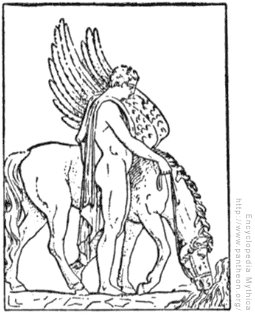CREW RESOURCE MANAGEMENT (Continoued...)
JUDGMENT
All the aviators and the crew members must apply the principles of Judgment in order to enhance the Crew Resource Management techniques of the crews assigned to the company they work for.
Judgment and Decision Making:
A popular belief is that judgment is good "common sense" as applied to making decisions, especially correct decisions. "Sense" relates to an intense awareness, realization, and understanding of all the factors involved in making a decision. Sense is generally applied to a person’s ability in any given situation.
Judgment is not an end in itself. In making decisions one must consider all relevant intrapersonal, equipment, operational (the mission or the purpose of the air-mission), and environmental factors which may influence the decision ‑ making process. Judgment is, therefore, a process which produces a thoughtful, considered response (i.e., action/inaction) to that decision.
From this comes a definition of judgment:
Judgement is the process of recognizing and analyzing all available information about oneself, your equipment, the operating environment, and the purpose of the air-mission. This is followed by the rational evaluation of alternatives to implement a timely decision for the situation which assures safety.
Judgment thus, involves one's attitudes toward risk ‑ taking and one's ability to evaluate risks and make decisions based upon his/her knowledge, skill, and experience. A judgmental decision always involves a problem or choice, an unknown element, and usually a time constraint and stress.
As mentioned, judgment is affected by attitude.
Let's take a look at five hazardous thought patterns (attitudes) and see how they can affect judgment and the decision‑making process.
Hazardous Thought (attitudes) Patterns:
ANTI‑AUTHORITY: "Don't tell me!"
This attitude is found in people who do not like anyone telling them what to do. In a sense they are saying, "No one can tell me what to do". They may either be resentful of having someone tell him/her what to do or may just regard rules, regulations, and procedures as silly or unnecessary.
ANTIDOTE:
"Follow the rules: They are usually right."
All the aviators and the crew members must apply the principles of Judgment in order to enhance the Crew Resource Management techniques of the crews assigned to the company they work for.
Judgment and Decision Making:
A popular belief is that judgment is good "common sense" as applied to making decisions, especially correct decisions. "Sense" relates to an intense awareness, realization, and understanding of all the factors involved in making a decision. Sense is generally applied to a person’s ability in any given situation.
Judgment is not an end in itself. In making decisions one must consider all relevant intrapersonal, equipment, operational (the mission or the purpose of the air-mission), and environmental factors which may influence the decision ‑ making process. Judgment is, therefore, a process which produces a thoughtful, considered response (i.e., action/inaction) to that decision.
From this comes a definition of judgment:
Judgement is the process of recognizing and analyzing all available information about oneself, your equipment, the operating environment, and the purpose of the air-mission. This is followed by the rational evaluation of alternatives to implement a timely decision for the situation which assures safety.
Judgment thus, involves one's attitudes toward risk ‑ taking and one's ability to evaluate risks and make decisions based upon his/her knowledge, skill, and experience. A judgmental decision always involves a problem or choice, an unknown element, and usually a time constraint and stress.
As mentioned, judgment is affected by attitude.
Let's take a look at five hazardous thought patterns (attitudes) and see how they can affect judgment and the decision‑making process.
Hazardous Thought (attitudes) Patterns:
ANTI‑AUTHORITY: "Don't tell me!"
This attitude is found in people who do not like anyone telling them what to do. In a sense they are saying, "No one can tell me what to do". They may either be resentful of having someone tell him/her what to do or may just regard rules, regulations, and procedures as silly or unnecessary.
ANTIDOTE:
"Follow the rules: They are usually right."
IMPULSIVITY: "Do something ‑‑ quickly!"
This is the attitude of people who frequently feel the need to do something, anything, immediately. They do not stop to think about what they are about to do; they do not select the best alternative ‑‑ they do the first thing that comes to mind.
ANTIDOTE:
"Not so fast. Think first."
INVULNERABILITY: "It won't happen to me!"
Many people feel that accidents happen to others but never to them. They know accidents can happen, and they know that anyone can be affected; but they never really feel or believe that they will be involved. Individuals who think this way are more likely to take chances and accept unwise risks, thinking all the time, "It won't happen to me!"
ANTIDOTE:
"It could happen to me."
MACHO: "I can do it!"
People who are always trying to prove that they are better than anyone else think, "I can do it!" They "prove" themselves by taking risks and by trying to impress others. While this pattern is thought to be a male characteristic, women are equally susceptible.
ANTIDOTE:
"Taking chances is foolish."
RESIGNATION: “What’s the use?”
People who think, “What’s the use?” do not see themselves as making a great deal of difference in what happens to them. When things go well, they think, “That’s good luck.” When things go badly, they attribute it to bad luck or feel that someone is “out to get them.” They leave the action to others, for better or worse. Sometimes, such individuals will even go along with unreasonable requests just to be a “nice guy.”
ANTIDOTE:
"I’m not helpless. I can make a difference."


0 Comments:
Post a Comment
<< Home